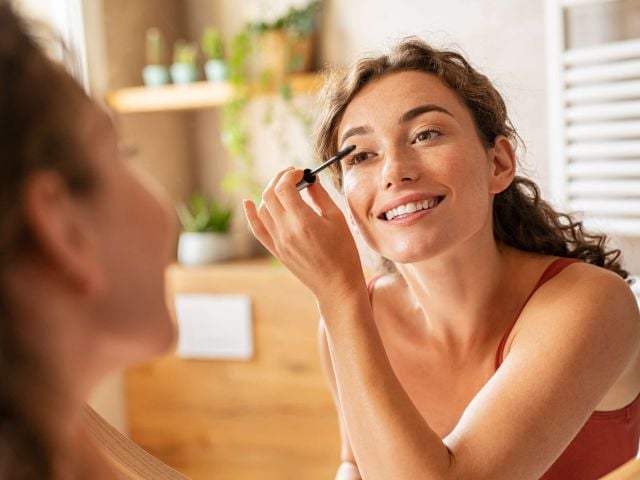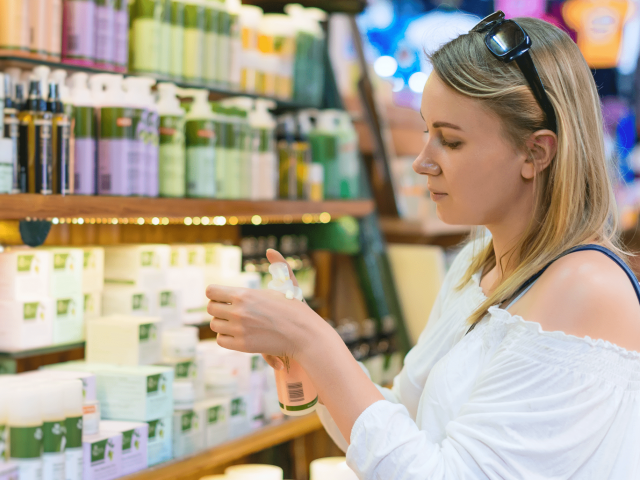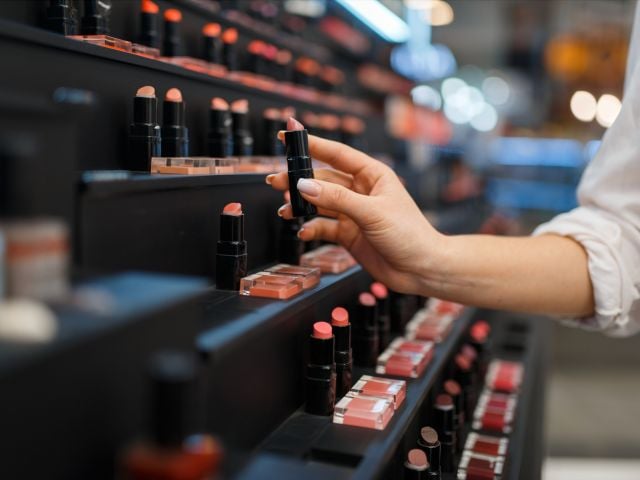
It’s getting cold in many parts of the U.S., and our skin knows it.
Dropping temperatures and lower humidity can lead to dry skin, cracked lips and brittle hair. Heated homes, schools and office buildings make matters worse.
We slather on moisturizing creams and lotions for relief, but some of these products contain ingredients that are known to be harmful. Many are untested and essentially unregulated.
Before stocking up this winter, check out these tips to protect your skin from the cold while minimizing your exposure to potentially harmful chemicals.
1. Choose healthy products
Lotion
Lotion is a cold-weather essential for exposed areas, like our faces and hands. When you choose one for yourself and your family, look for hydrating options – and skip those with the word “fragrance” in the ingredient list.
Companies aren’t required to disclose what’s in proprietary fragrance ingredient mixtures. So unless a company chooses to be transparent about the ingredients in their fragrance blend, there’s no way for you to know what they are. Mystery fragrance ingredients could include allergens, asthma triggers or hormone disruptors such as phthalates.
Apply lotion when your skin is moist, and skip bubble bath products, which dry the skin. Children and people with sensitive or particularly dry skin may benefit from using natural oils, such as coconut or canola, instead of lotion.
For options that meet EWG’s criteria for health and transparency, check out EWG VERIFIED® lotions.
Hair conditioner
When you’re shopping for a conditioner, avoid those that list propyl paraben or DMDM hydantoin on the label. These preservatives pose safety concerns that include hormone disruption, allergic reactions and immunotoxicity.
Both chemicals are legal in the U.S. Parabens are banned or strictly regulated in the European Union. DMDM hydantoin is a formaldehyde releaser and has been classified as a known carcinogen by the National Toxicology Program.
We’ve got you covered with our EWG VERIFIED conditioners.
Tip: When you rinse, leave a little product in your hair to provide some added conditioning.
Lip balm
We can’t avoid ingesting a bit of lip product when we talk, eat and drink, so it’s important to apply a healthy one. Try non-petroleum-based balms made from natural oils. Avoid products that list retinyl palmitate or retinyl acetate on the label, both of which can contribute to vitamin A toxicity if combined with excessive sun exposure.
During the winter, choose lip products that offer sun protection if you’re out in the snow or near water, but avoid any that list oxybenzone on the label. This chemical is unsafe for both humans and the environment and has been banned in locations such as Hawai'i and Key West because of aquatic concerns.
If you need help finding better products, our EWG VERIFIED lip balms contain none of the toxic ingredients.
Search EWG’s Skin Deep® database to find the right lotion, hair conditioner or lip balm for your family.
2. Wear sunscreen
Even when it’s cold outside, the sun still shines brightly. Depending on where you are, your risk of sunburn may be lower in winter, but the sun’s skin-damaging ultraviolet rays reflect off snow and water, increasing your exposure.
A recent EWG study showed that many sunscreens offer only a quarter of the SPF protection companies claim to have. EWG’s Guide to Sunscreens can help you find products with few health concerns and sufficient sun protection. Remember to wear protective clothing and apply sunscreens that list zinc oxide or titanium dioxide as the active ingredients; products with 3 percent avobenzone may also be a good option.
3. Do it yourself
You can use common household oils to moisturize your skin, lips, hair and scalp. Popular natural ingredients include shea butter and coconut, argan, avocado, jojoba and almond oils. If you add essential oils for scent, use them sparingly. Some botanical oils and extracts can trigger allergic skin reactions in people.
To cleanse your hair, try rinsing it with diluted apple cider vinegar and warm water after shampooing.
Make sure to test homemade products on a small patch of skin to check for allergic reactions. Since they’re made from perishable ingredients, homemade products have a shorter shelf life than store-bought products, so use them up quickly or discard them if you notice changes to their consistency or scent.
4. Stay hydrated
Keep your skin healthy and hydrated from the inside by drinking plenty of water and eating nutritious, moisture-rich foods, such as fruits and vegetables.
With naturally hydrated skin, you’ll likely need fewer products less often – a great way to save money and limit your family’s exposure to the complex mixture of ingredients in many commercial body care products.



